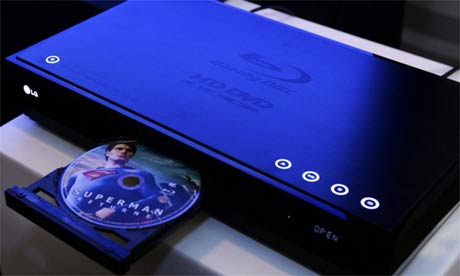You might have seen a recent headline about Sony's announcement of its new "Open Market" digital rights management consortium, with the strapline "Let 1000 retailers bloom."
The idea is to kick the pins out from underneath Apple's DRM scheme ("let a single retailer bloom") by forging an alliance of use-control companies who agree to share DRM-crippled works between their devices. Right now, your Blu-Ray videos are tied to Blu-Ray players, but if Sony has its way, you'll be able to move them to other restrictive platforms, provided the manufacturers of those platforms are part of Sony's consortium.
If you're a DRM junkie, this will sound awfully familiar: it's functionally indistinguishable from a failed consortium called Coral, though Coral required your devices to contact its servers more often than Open Market will.
Big deal.
Coral failed for several reasons, but most importantly it failed because successful DRM companies don't join DRM consortia. Once a song, movie, game or book is crippled with DRM, it's illegal to make a player that can run it, unless you have the DRM company's permission. That means that if Sony-BMG Music created a player that could play back its own DRM songs from the iTunes store, they'd be violating Apple's copyrights – even though it holds the copyrights in the music itself.
So if Sony wants to wean its listeners off iPods and onto Walkmans, it has to convince anyone who has bought iTunes DRM music to abandon those tracks and buy them again from a Sony DRM store or some other retailer with compatible DRM (or no DRM at all).
This is a cat-bird seat for Apple. It gets incredible, Wal*Mart-grade control over its suppliers, right down to pricing and placement. Every time it sells another DRM song or video or audiobook (Apple offers higher-priced DRM-free music, but all its audiobooks and videos are still encumbered with DRM), it strengthens this control, because every DRM-locked file it sells adds to the cost of moving away from Apple's devices to a competitor's.
Coral and Open Market are like a treaty negotiation where only one side has bothered to sign up. It's like getting all the kids in your class to "agree" that they're getting top marks on their exams – and then denouncing the teacher for his failure to recognise the landmark accord.
But let's say Open Market or something like it succeeds. Be afraid: these things are a one-way ticket to losing the rights to your media.
Here's how DRM is supposed to work. Say you want to watch a movie but you don't care to own all the rights to it. You find a DRM vendor who's willing to sell you a subset of the rights at a discount so that, say, "I can watch this movie in Europe, but not in the rest of the world" (think of a Region 2 DVD). Or "I can watch this movie for seven days, and only in the UK" (BBC iPlayer) or "I can watch this movie while it's playing over the air, but my PVR isn't allowed to record it" (TiVo with CGMS/A).
Every one of these systems has a slightly different, mismatched vocabulary for expressing which restrictions accompany your media.
When you move media from one device to another using a scheme like Coral or Open Market, they have to negotiate what restrictions you'll suffer on the new device. There's two ways of handling this: the devices can "round up" to a more liberal version of the restrictions (a movie going from BBC iPlayer to the DVD-based CSS would go from "Watch in the UK for 7 days only" to "Watch anywhere in Europe forever"), or they can "round down" (the iPlayer movie becomes non-playable at all on the CSS system).
Coral handled this by rounding down, so that with each transfer of your media to a new device you lost a little something in the deal, until the permissions you held to the media had been whittled away to zero so that you couldn't use them at all.
Will Open Market round up? Hardly. Rounding up provides a trivial way to remove all restrictions from media: just move it to a device whose two modes are "No restrictions" and "No permissions." The rounding up transaction will strip all restrictions off the file.
One of the things that makes digital media great is that there's no generation loss: there's perfect fidelity from one copy to the next. That's why I can still run the Logo programs I created in elementary school in 1979 on a computer manufactured in 2008. That's why I can play the MP3s I ripped from my CD collection in 1999 on a digital car stereo that ships today.
Open Market is a product the market has no need for: a system for making digital copies rot, a system for making media less useful every time they are moved to a more powerful, more capable player.
We weren't taken in by Coral and we won't be taken in by Open Market. I'll bet my MP3s on it.
